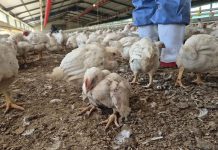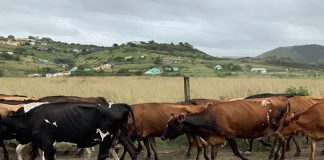
Photo: FW Archive
The latest Statistics South Africa Quarterly Labour Force Survey (QLFS) reveals an increase in unemployment and a decrease in employment figures, painting a grim picture of the nation’s economic landscape.
The QLFS data indicates a drop of 92 000 employed persons, bringing the total number to 16,7 million. Concurrently, the number of unemployed individuals rose by 158 000, reaching 8,4 million.
Job losses in agriculture reflect harsh economic conditions.
Wandile Sihlobo, chief economist at Agbiz, said: “Statistics South Africa show that employment in primary agriculture was down 5% quarter-on-quarter to 896 000 in the second quarter of 2024.”
He further mentioned that although the sector saw a slight annual increase of 0,2% from the second quarter of 2023, agricultural employment remained well below the long-term average of 799 000 jobs.
South Africa’s farming jobs remain well above long-term levels
The effects of the recent El Niño-induced mid-summer drought are starting to show in South Africa’s agricultural jobs data. For example, the figures released by Statistics South Africa today show that employment in… pic.twitter.com/T8I2Ycm6Gc
— Wandile Sihlobo (@WandileSihlobo) August 13, 2024
“This generally reflects the harsh summer season we are leaving behind. Some subsectors showing a decline in employment include field crops, livestock, and forestry,” Sihlobo said.
He attributed this to the midsummer drought that severely impacted field crops, higher feed costs, and lingering animal diseases affecting livestock.
“The job performance in these subsectors is unsurprising given these challenges,” Sihlobo said.
The provincial breakdown reveals significant losses in the Western Cape, Northern Cape, North West, and Gauteng, while other provinces saw mild improvements.
“The Western and Northern Cape provinces do not have significant summer crop production. The quarterly job losses in these regions mirror the financially constrained environment in farming businesses,” Sihlobo said.
Bennie van Zyl, general manager of TLU SA, linked the high unemployment rate to broader socio-economic issues.
“Unemployment and crime are inseparably linked. When people are desperate and without work, they often turn to crime out of necessity. This is not just a social issue; it’s a direct consequence of government’s economic policies over the last three decades,” Van Zyl said in a statement.
He criticised the ANC government’s policies, suggesting they had exacerbated the unemployment crisis.
“The ANC’s transformation policies have severely undermined investor confidence,” Van Zyl said.
He mentioned cadre deployment and BEE as factors leading to the appointment of individuals based on political connections rather than competence.
“Businesses are withdrawing their investments, and entrepreneurs are leaving the country because they see no future in a system that prioritises political connections over merit,” Van Zyl said.
He also mentioned the decline of state-owned enterprises as evidence of policy failure. “Institutions like Eskom, the SAA and the Post Office used to function effectively and contribute to our economy, but now they are barely operational, and this is a direct consequence of government’s policy of cadre deployment.”
To address the crisis, TLU SA advocates for a shift in focus from job creation rhetoric to fostering real economic growth.
“A thriving economy is essential for sustainable job creation. This can only be achieved if the private sector is allowed to operate freely and securely,” Van Zyl said.










